Picture this: you’ve been planning your birthday, the vibes are great, the cake is ready, you’re pumped.
Then your aunt shows up unannounced on the day itself, toddlers in tow, no card, and plenty of chaos to turn your celebration into a nightmare.
That’s exactly what happened to this Redditor, who turned to the platform for some support—since her family clearly wasn’t offering any.
The woman was excited to celebrate her birthday

Image credits: MART PRODUCTION/Pexels (not the actual photo)
She just didn’t plan on her aunt showing up unannounced and turning it into a nightmare

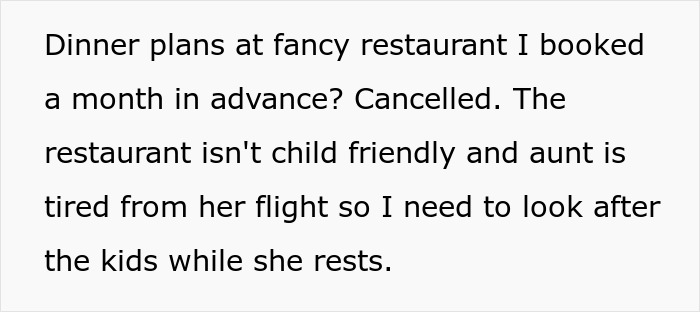
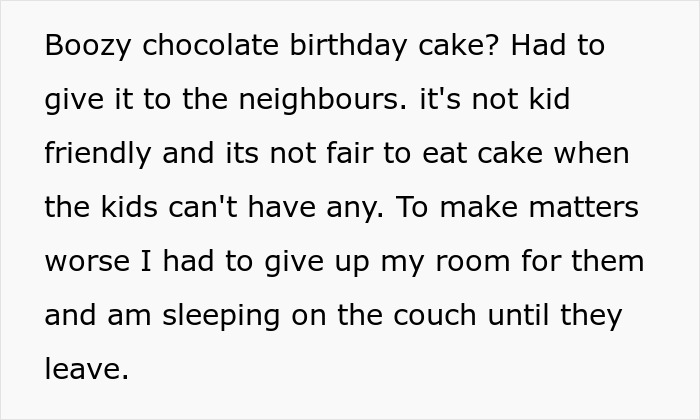

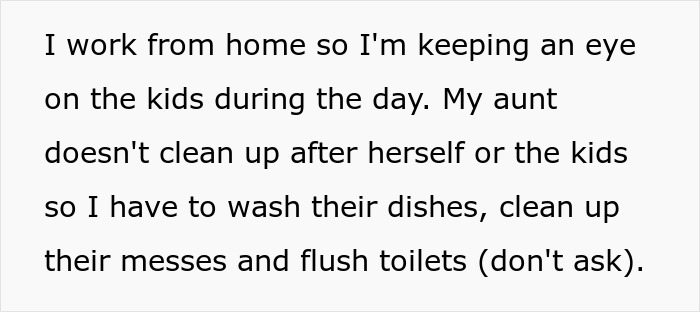

Image credits: Freepik (not the actual photo)

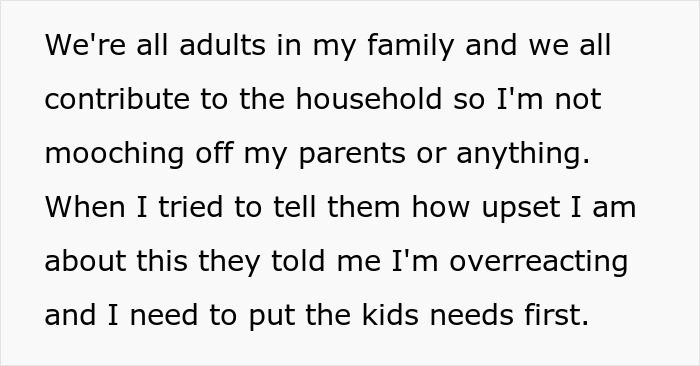

As she shared later, she had no clue when her aunt was planning to leave
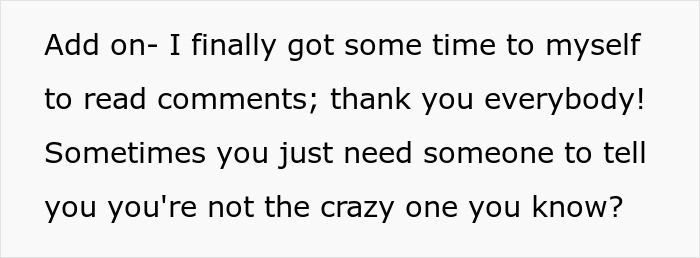
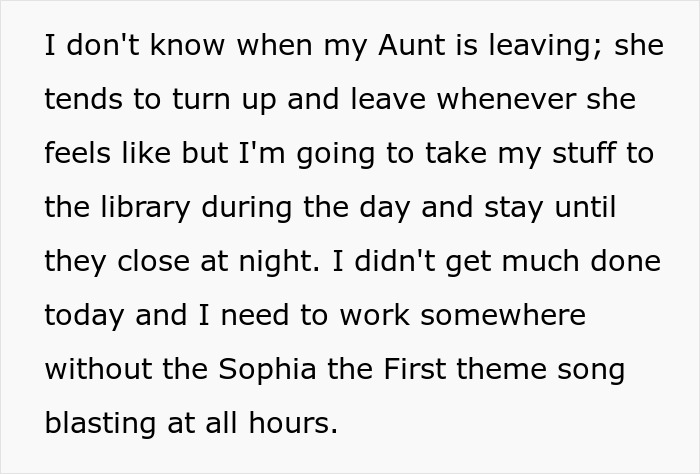
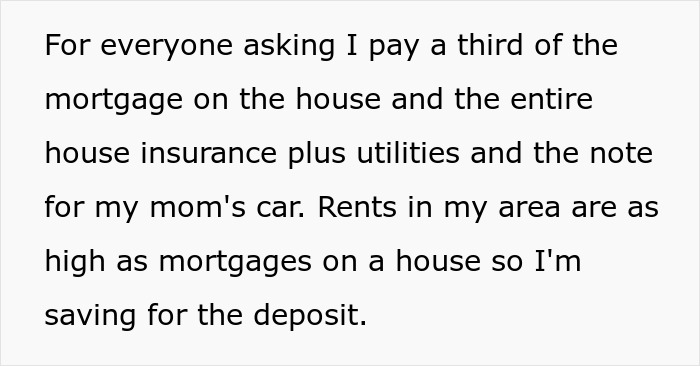
Image credits: Fryanleela
How to say no to family
I don’t know about you, but I grew up in a family where, whenever relatives visited, you were expected to smile, be polite, and put on a good face, even if their behavior drove you up the wall. Honestly, it’s exhausting.
That said, I’ve never had anyone show up on my birthday unannounced and expect me to babysit their kids.
But the point is, when it comes to family, we’re often taught to put their needs first, no matter what. And that makes it incredibly hard to say no, even when we should.
Why? Because even the thought of refusing can bring a wave of guilt, shame, or disappointment from others. We’ll bend over backward just to avoid saying a firm no.
So… is it even possible to set boundaries with family in a way that’s both firm and respectful?
Kristin McCarthy, M.Ed.—a former educator, mom of four, and family blogger—says yes. And she has advice on why it matters and how to actually do it.
One of her key points? When you always say yes, you risk enabling behavior you don’t want. You might think you’re helping, but McCarthy suggests asking yourself: Is this really helping them? Or am I just stopping them from stepping up and solving their own problems?
Constant yeses can also drain you, emotionally and even financially. If family knows you’re a guaranteed source of help, they’ll keep coming back. And that’s no way to live.
Now, the hard part: actually saying no. It feels intimidating, but it’s worth it.
McCarthy suggests starting the conversation on a positive note.
“If good things have happened in their life recently, ask about what’s going well. Let them tell you all of their great news,” she says. “If you share common memories or inside jokes, break the ice with those. Starting this type of conversation with positive verbiage will ease the tension that stems from asking for favors that are declined.”
But don’t ramble or give yourself room to backtrack. Be clear, focused, and direct. Say what you need to say—and say no.
You also don’t always have to use the word no to set a boundary. You can offer a polite alternative that gets the message across. Like:
- “Unfortunately, I have to work that day, but maybe Sally and Jim have the weekend off?”
- “I’d love to help, but I know nothing about building a deck. Maybe someone else would be better suited?”
- “I can’t babysit this weekend, I have plans I can’t change. But maybe next month I could take the kids out for dinner and give you some free time?”
And don’t improvise. Take a little time to practice what you’ll say. It’ll make you feel more confident and help you stand your ground.
Finally, remember this: saying no doesn’t make you a bad person.
“You are human, not a magical genie in a bottle. It is not your job to grant the wishes of those around you,” McCarthy reminds.
You can still be supportive and kind, and step in when there’s a real emergency. But setting boundaries should never come at the cost of your peace of mind.
Readers agreed the woman had every right to be upset and encouraged her to speak up
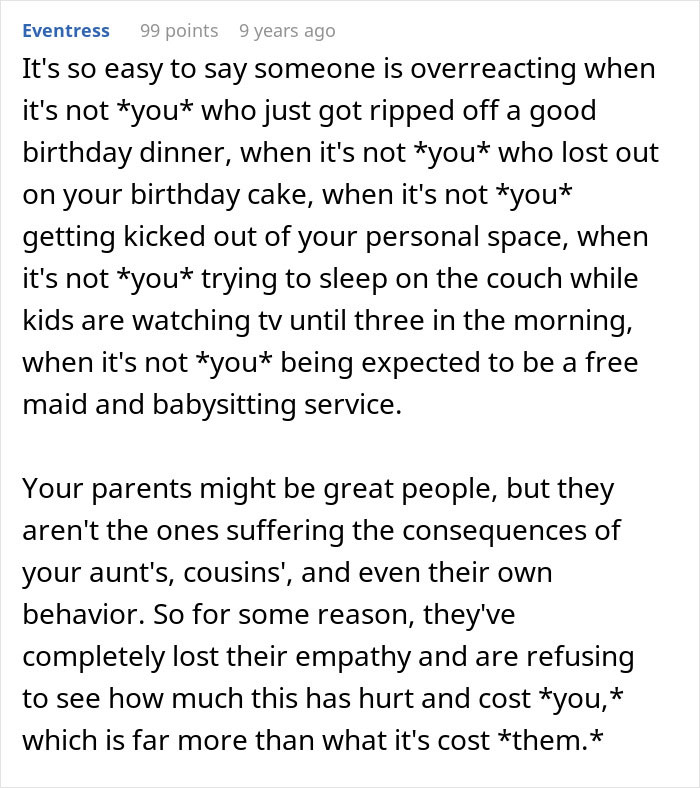
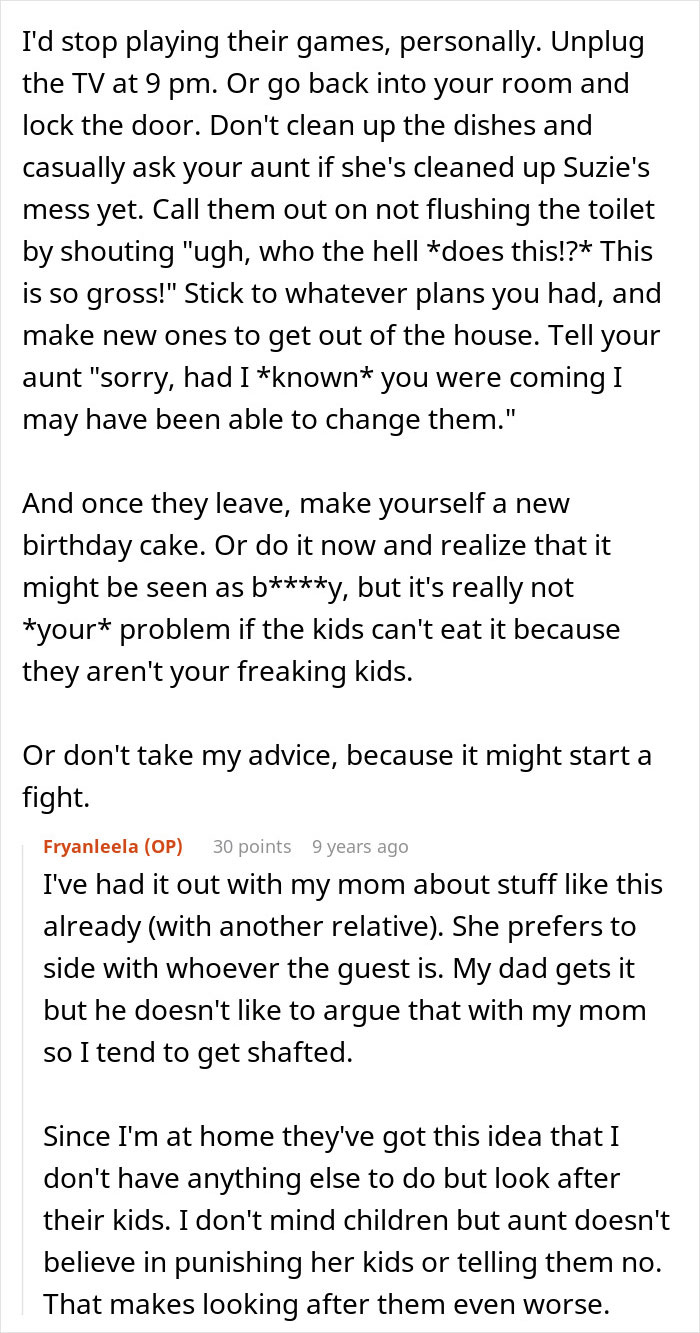
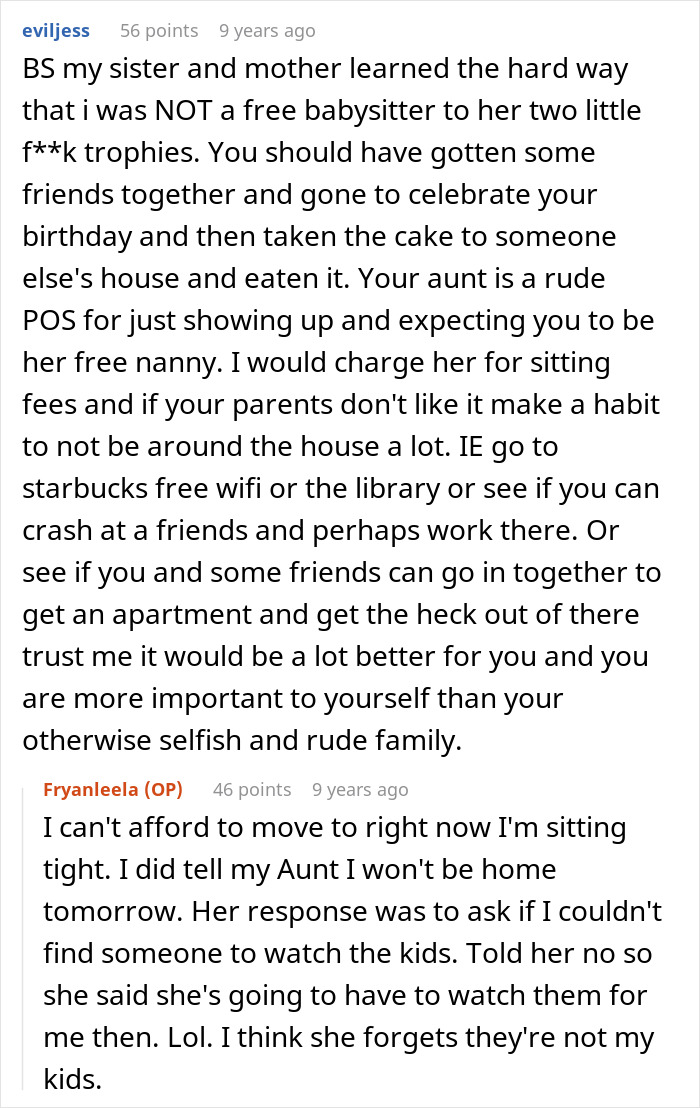
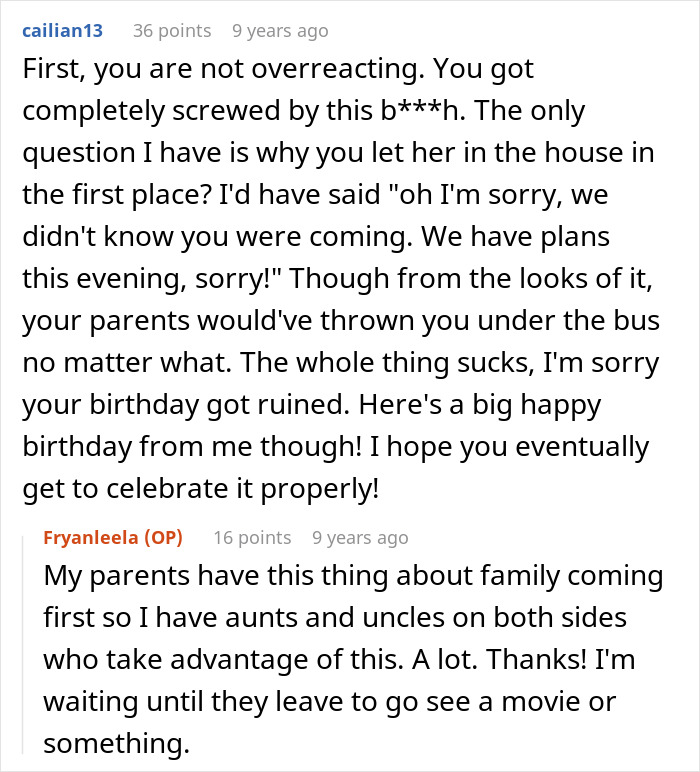
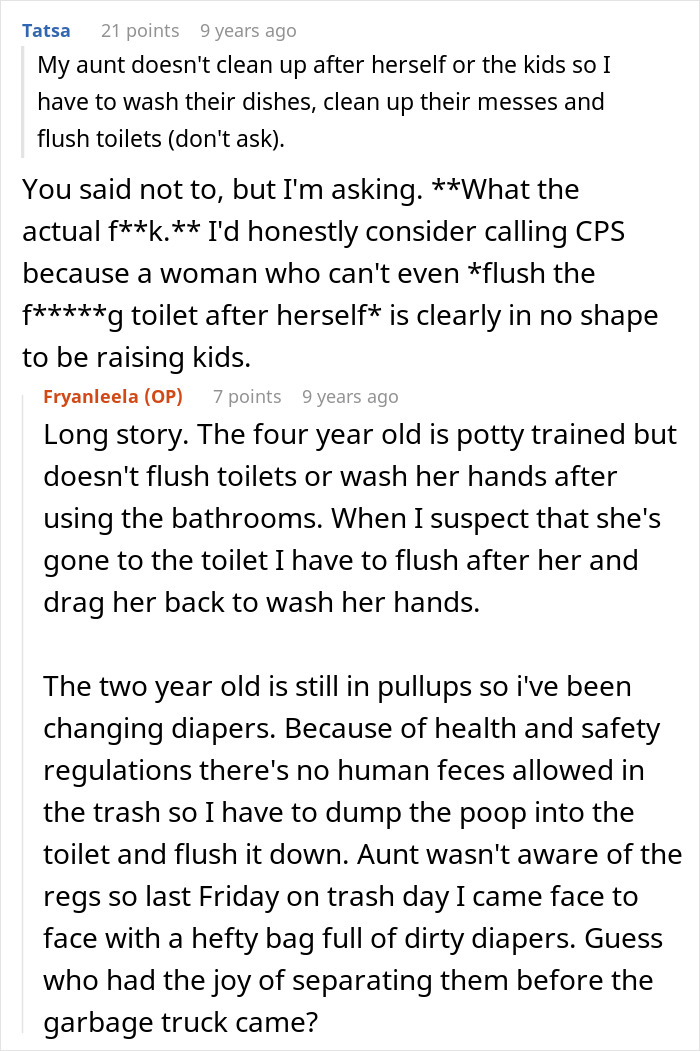
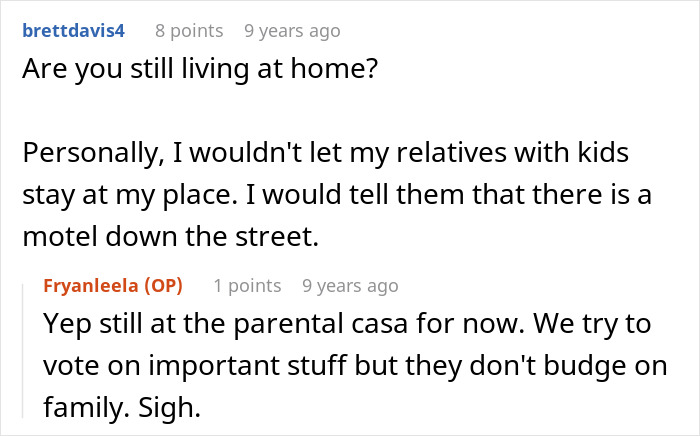

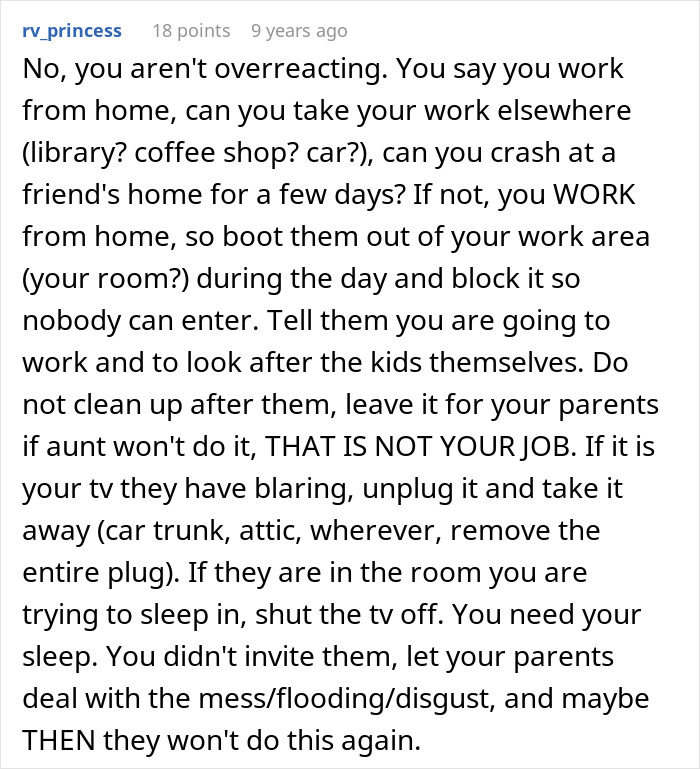


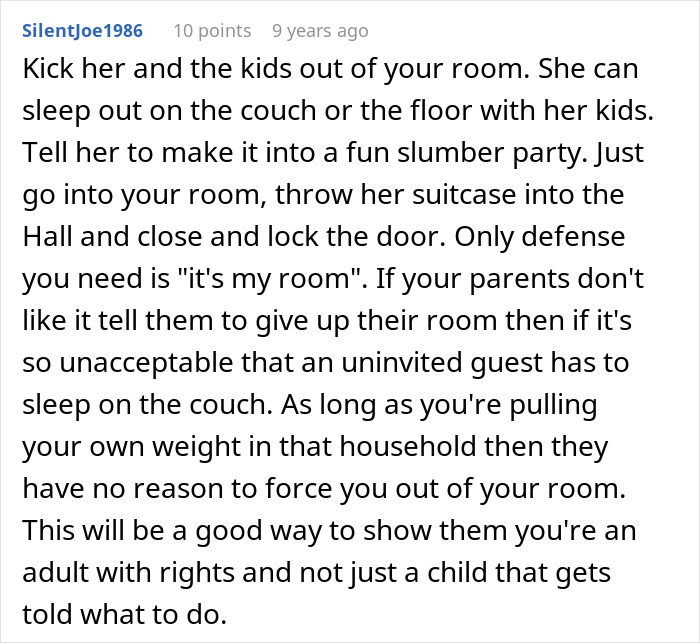
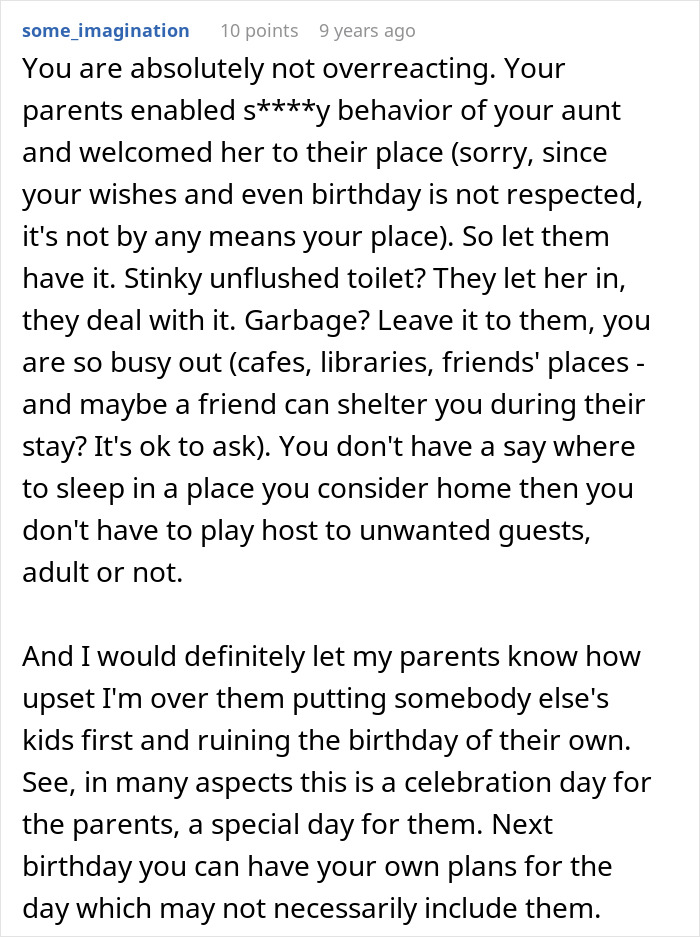
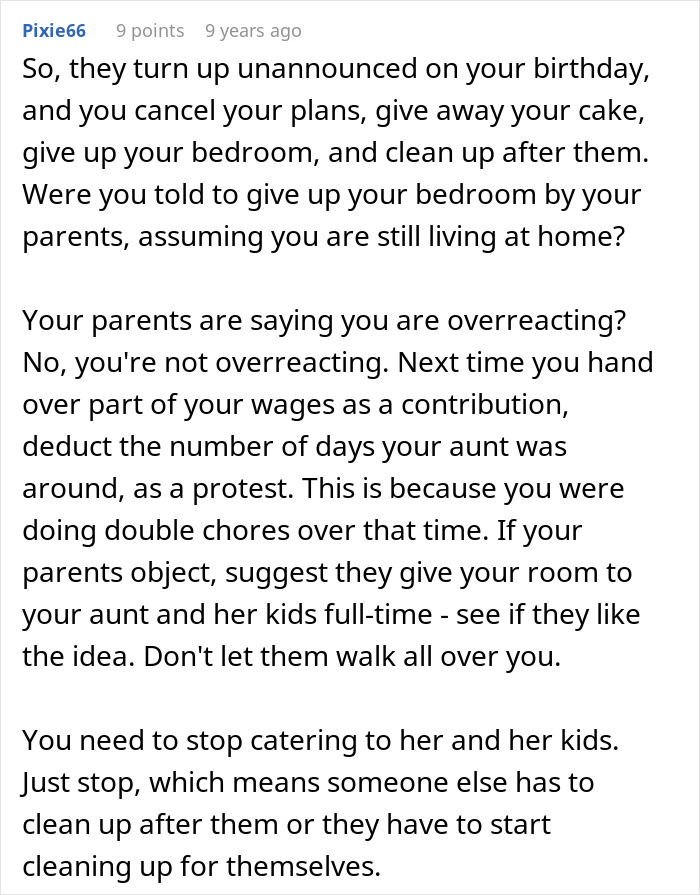
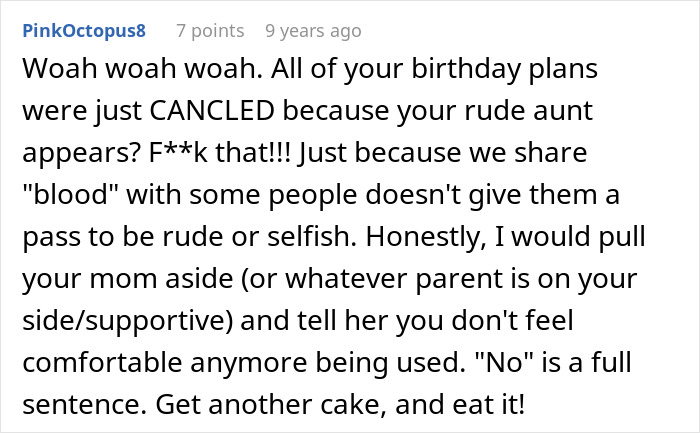
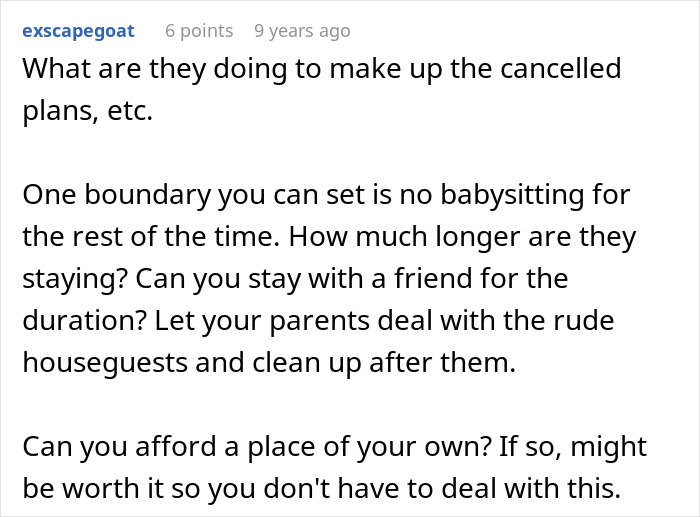
And one commenter shared a story of their own
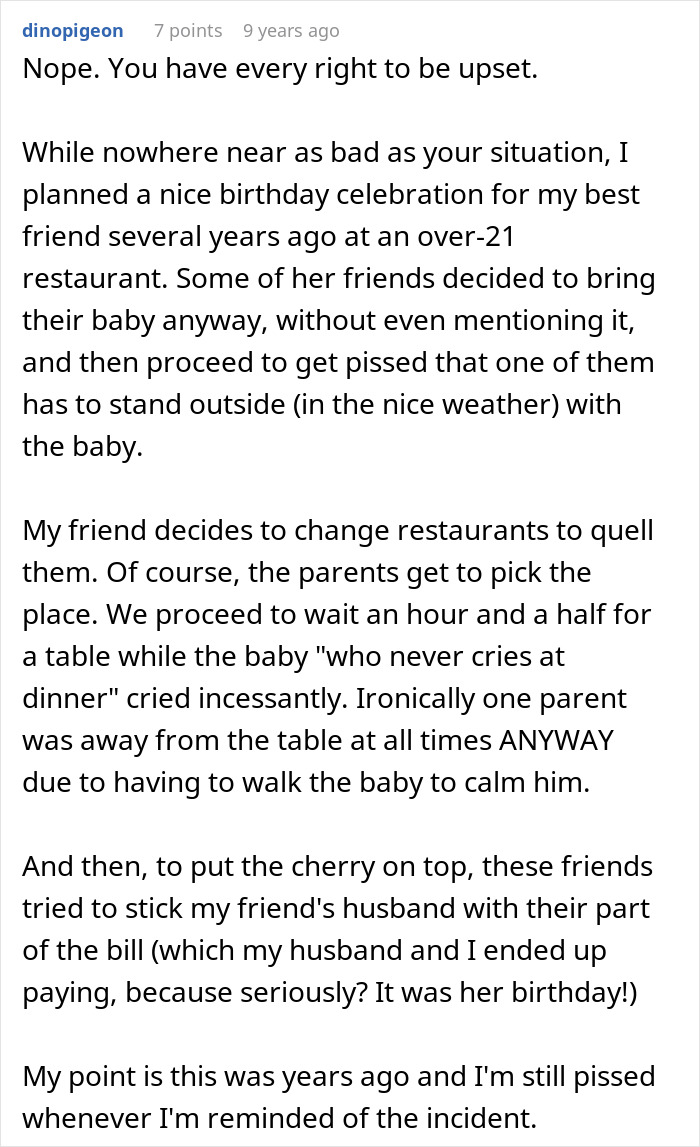
from Bored Panda https://ift.tt/FxOaQJI
via IFTTT source site : boredpanda